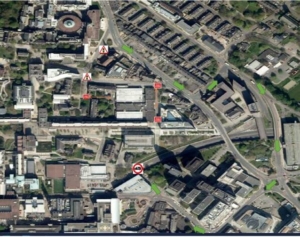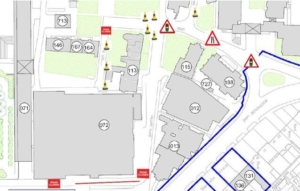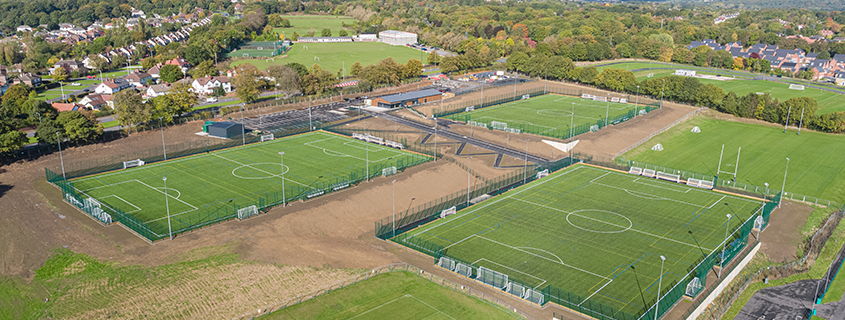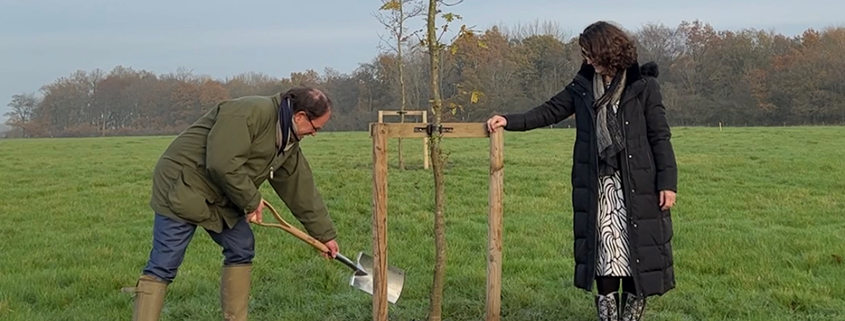Closure of Vernon Road, Cavendish Road and Lodge Street
Last updated on 20 April 2023
Due to essential highway reconstruction, on 6 January – 19 January 2023, Vernon Road will be closed to traffic and traffic management will be in place on Cavendish Road to facilitate resurfacing. Lodge Street will be closed for the period of work with no parking prior to it being resurfaced.
Effects of this interruption
6 January 2023: Lodge Street closed for delivery of site welfare, deliveries and set up of site compound – Lodge Street
9 – 13 January 2023: Vernon Road closed for deep excavation to rebuild the surface
17 – 18 January 2023: Vernon Road and Cavendish Road closed for surfacing and traffic management.
19 January 2023: Lodge Street closed for surfacing
Services to be interrupted
Vernon Road closed, no access for vehicles greater than 7.5T to the south of campus. A diversion in place for vehicles under 7.5T via Willow Terrace Road.
Effects of this interruption upon building occupants
Restricted vehicle access and traffic management in place.
Alternative access routes are highlighted on the map below.


For enquiries please contact: James Wright, Senior Maintenance Manager
Contact Telephone No: 0113 343 5981 Mobile: 07534 982249
Email: j.r.wright@leeds.ac.uk
If the above member of staff is unavailable, you have any general queries about our services or would like to add or remove a person from this email list, please contact the Estate Services Helpdesk on 0113 343 5555 or e-mail: eshelp@leeds.ac.uk
Thank you for your patience and apologies for any inconvenience caused.













